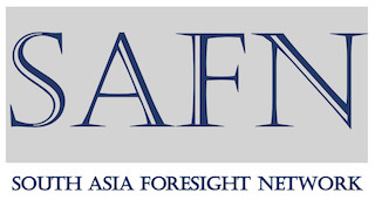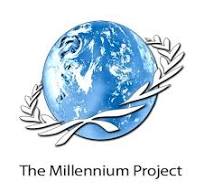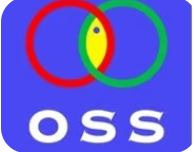Integrity as Infrastructure: What Sri Lanka Can Learn from Vietnam’s Success
What can Sri Lanka learn from Vietnam’s story? - transformation is not a single event but a sustained commitment to accountability, discipline, and diplomatic balance.
COMMENTARIES
Dzung Le
10/15/2025


Two Nations, Two Journeys
When Sri Lanka declared bankruptcy in 2022, it symbolized a wider regional crisis—where governance, debt, and public trust collapsed together. Three years later, Vietnam, once a war-torn nation, celebrated its elevation to emerging market status by FTSE Russell.
One country rebuilding from insolvency, the other rising as a credible financial hub.
Vietnam’s Rise: Reform Rooted in Resilience
Vietnam’s transformation over four decades is remarkable. From a planned economy in the 1980s to a market economy exceeding USD 470 billion in GDP by 2024, the country has sustained growth at 7.1 percent backed by robust exports, resilient foreign direct investment, and supportive policies.
Vietnam’s foreign policy, known as “bamboo diplomacy”, blends flexibility with sovereignty -bending with global winds yet staying firmly rooted. The country maintains comprehensive partnerships with China, Russia, and the U.S. while expanding cooperation with Japan, the EU, and South Korea. By joining major trade frameworks such as CPTPP and EVFTA, Vietnam has diversified its economic partners and mitigated geopolitical dependency. This equilibrium is now reflected in its ambition to establish International Financial Center - a bid to move from manufacturing to high-value financial services.
The recent anti-corruption campaign - unofficially known as “chiến dịch đốt lò” or “the furnace”. Between July and September 2025 alone, authorities investigated over 400 corruption-related cases involving nearly 1,500 suspects. Running parallel to this campaign is another front - less visible but equally decisive - the battle against systemic financial crime.
Major cases such as Vạn Thịnh Phát - considered the largest financial case in Vietnam’s judicial history - together with the Trịnh Văn Quyết (FLC Group) stock manipulation scandal and the Tân Hoàng Minh Group bond fraud investigation, reveal a complex web extending far beyond economics.
Sri Lanka’s Turning Point
Sri Lanka’s 2022 crisis revealed the cost of lost trust. Years of fiscal indiscipline and opaque governance culminated in bankruptcy and mass protests. Citizens did not only demand fuel or food - but they also demanded integrity.
With IMF support, Colombo is now pursuing debt restructuring, anti-corruption reforms, and public finance transparency. Yet recovery remains fragile.
Shared DNA: Why Vietnam Can Be a Model
Despite different systems, the two countries share common traits. Both are post-conflict societies rebuilding legitimacy through development. Both are strategically located in the Indo-Pacific, navigating competing powers. Both have struggled with corruption, bureaucracy, and governance inertia.
What can Sri Lanka learn from Vietnam’s story? - transformation is not a single event but a sustained commitment to accountability, discipline, and diplomatic balance.
Four Lessons for Sri Lanka
Using Integrity as Economic Policy
Vietnam’s anti-corruption drive demonstrates that governance reform is a growth strategy. Each successful prosecution strengthens investor confidence and policy credibility. The famous metaphor used by General Secretary Nguyen Phu Trong to describe how ‘the furnace’ can prosecute the highest-level corrupt officials:
“The furnace is already burning hot, so even fresh wood must catch fire. The dry wood and the damp wood burn first, and as the furnace heats up, every agency becomes involved - no one can stand aside. No one can remain outside of this effort. Even those who might wish not to act can no longer avoid it — that is what success means.”
Strategic foreign affair policy – stay neutrality while conducting its internal reforms
Like Vietnam’s bamboo diplomacy, Sri Lanka can engage all partners - China, India, the U.S - balancing global powers while safeguarding autonomy. It is a key success to remain the nation’s strength amid complex global geopolitical rifts while strengthening its institutional sustainability.
Deeper Institutional Reforms
Vietnam’s move from a three-tier local government system to a two-tier model aims to serve citizens more directly and efficiently - a symbolic reform of its governance. This emphasises transparency and governance capacity as key to building trust and economic sustainability.
Fighting systemic economic crime in another front
Beneath these financial crimes lie intricate networks of shadow finance, political influence, and geopolitical interplay, exposing how vulnerabilities in corporate governance and regulatory oversight can intertwine with broader institutional and transnational dynamics.
The ECGI’s Role
The Economic Crime & Geopolitics Index, developed under the Millennium Project, offers a regional framework to measure how corruption, governance, and geopolitical pressures interact. Currently, the index is being piloted through the global network of The Millennium Project, involving more than 70 countries, and is rapidly recognized as a critical tool for governments, regulators, and international organizations.
In its first evaluation, Vietnam was ranked in the “medium risk” group, comparable to Thailand, Laos, and Malaysia - indicating stronger governance than high-risk economies such as Pakistan, Sri Lanka, or Indonesia.
For Vietnam, the Index benchmarks progress toward financial transparency and global integration.
For Sri Lanka, it provides a diagnostic mirror to track post-crisis governance and anti-corruption performance.
Conclusion
For Sri Lanka, the lesson is clear. Recovery will not be measured only by fiscal balance sheets, but by the credibility of the institutions that uphold them. In that sense, Vietnam’s story is not just a model - it is a mirror showing how integrity, once built, can become a nation’s most enduring asset.
About the Author
Dzung Le is a compliance, risk, and legal expert based in London. Formerly a Public Legal Officer at Vietnam’s Ministry of Justice, she serves as a Fellow (Honorary) of the Economic Crime & Geopolitics Center (ECGC), South Asia Foresight Network, Washington, D.C.


